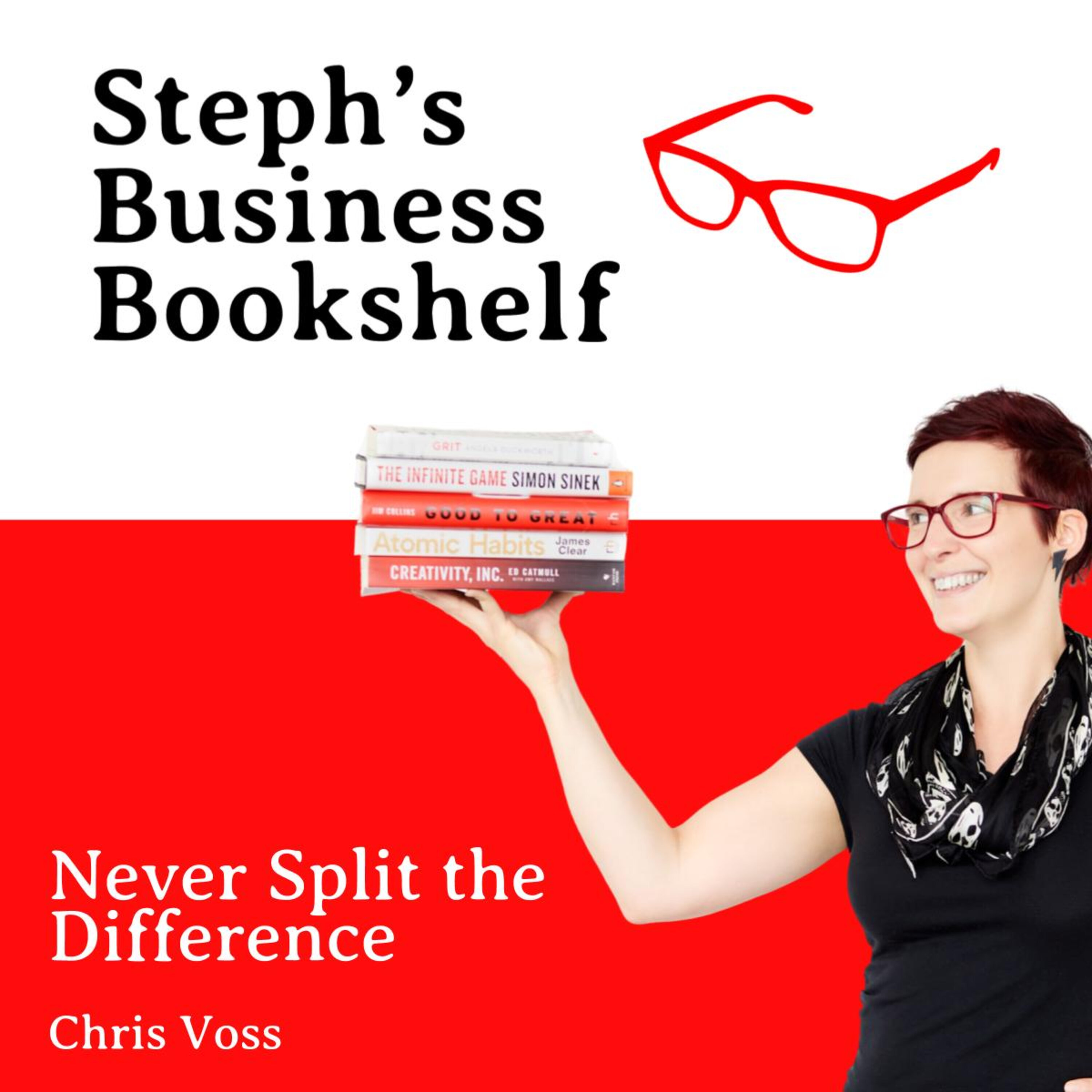Never Split the Difference by Chris Voss: Why no is better than yes

\xa0
\nAbout the Author
\nChris Voss has used his many years of experience in international crisis and high-stakes negotiations to develop a unique program and team that applies these globally proven techniques to the business world.
\nPrior to 2008, Chris was the lead international kidnapping negotiator for the Federal Bureau of Investigation, as well as the FBI\u2019s hostage negotiation representative for the National Security Council\u2019s Hostage Working Group.
\nDuring Chris\u2019s 24 year tenure in the Bureau, he was trained in the art of negotiation by not only the FBI but Scotland Yard and Harvard Law School. He is also a recipient of the Attorney General\u2019s Award for Excellence in Law Enforcement and the FBI Agents Association Award for Distinguished and Exemplary Service.
\nSource:\xa0https://www.blackswanltd.com/our-team/chris-voss
\nAbout the Book
\nEverything we\u2019ve previously been taught about negotiation is wrong: you are not rational; there is no such thing as \u2018fair\u2019; compromise is the worst thing you can do; the real art of negotiation lies in mastering the intricacies of No, not Yes.
\nThese surprising tactics\u2014which radically diverge from conventional negotiating strategy\u2014weren\u2019t cooked up in a classroom, but are the field-tested tools FBI agents used to talk criminals and hostage-takers around the world into (or out of) just about any scenario you can imagine.\xa0
\nThroughout the book, Voss draws on his experiences in truly life-or-death situations to illustrate these techniques, and offers scores of examples of how they translate into our working lives.
\nSource:\xa0https://info.blackswanltd.com/library
\nLinks
\nFind out more about the techniques in the book and worksheets to help plan your negotiations\xa0here: https://www.blackswanltd.com/
\nBuy from The Book Depository https://www.bookdepository.com/Never-Split-Difference-Chris-Voss/9781847941497/?a_aid=stephsbookshelf
\nBIG IDEA 1 (4:14) \u2013 Tactical empathy
\nTactical empathy is not about agreeing with the other person\u2019s position. Chris talks about the fact that some people are allergic in this concept because the idea of extending empathy to a hostage taker or terrorist is so abhorrent. However, the beauty of empathy is that it doesn\u2019t demand that you agree with the other person but does mean you need to identify their underlying emotion. You don\u2019t need to like the other person or agree with their idea to try and identify what they might be feeling.
\nThere are two ways to better build tactical empathy. First is mirroring, it\u2019s what humans and even animals do to create comfort with others. There are two kinds of mirroring \u2013 physical and verbal mirroring.\xa0 Physical mirroring is moving in sync with the other person (which builds trust and like-ness). Verbal mirroring is repeating back the last 1-3 vital words that the other person said, which allows them to elaborate more \u2013 creating deeper understanding and connection.
\nBIG IDEA 2 (7:46) \u2013 NO is your friend.
\nThe big myth in negotiation or sales is we want people to say \u2018yes\u2019, and say yes as quickly as possible. However, no is good because it slows things down, helps us get to the real issue and allows people to make better decisions. Mark Cuban once said \u2013 \u201cEvery no gets you closer to yes\u201d.\xa0 No also puts the feeling of control back with the other person, which is very important in a negotiation situation.
\nBIG IDEA 3 (10:13) \u2013 Forget fair.
\nWe often fall into the trap of wanting everything to be \u2018fair\u2019 whenever we talk about negotiation. \u2018Fairness\u2019 is often used to accuse the other party (either implicitly or explicitly) of being either unfair (they\u2019ve made you a horrible offer) or unreasonableness (they have declined your \u2018fair\u2019 offer).\xa0 This is not very useful to a relationship in a negotiation when the idea of fairness is often used as a weapon in order to accuse someone of something that they are not doing.\xa0
\nChris has discovered that one positive way of using fairness in a negotiation is up front, by making a statement like \u2018I want you to feel like you\u2019re being fairly treated at all times, so please stop me at any time you feel we\u2019re being unfair and we\u2019ll address it\u2019.\xa0 Again, this puts fairness on the table up front (rather than an accusation later on) and gives control and permission to the other party to bring up \u2018unfairness\u2019 at the right time.
\nMusic By:\xa0Almanac Song by Seth Parson
\n\xa0
Support my book habit: https://www.buymeacoffee.com/stephsbookshelf
See omnystudio.com/listener for privacy information.